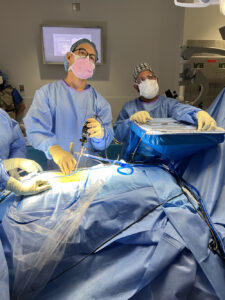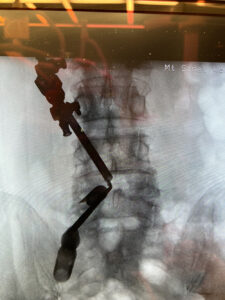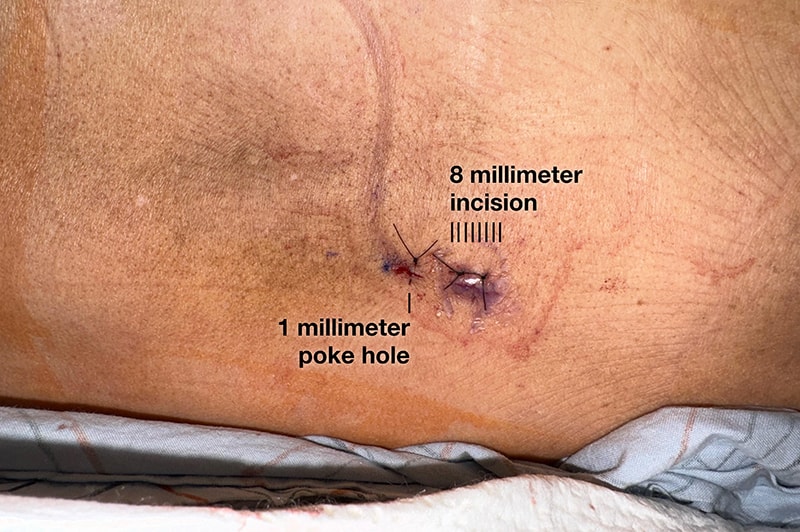Endoscopic Spine Surgery
In the realm of spinal surgery, technological advancements have revolutionized traditional approaches, offering patients safer, less invasive alternatives with shorter recovery times and reduced postoperative pain. One such innovation is endoscopic spine surgery, a minimally invasive technique that has garnered increasing attention and adoption within the medical community.
- What Is Endoscopic Spine Surgery?
- Endoscopic Spine Surgery Benefits
- Endoscopic Spine Surgery Procedure
- Endoscopic Spine Surgery Recovery
What Is Endoscopic Spine Surgery?
Endoscopic spine surgery is a procedure designed to help relieve lower back pain and discomfort caused by spine conditions. The minimally invasive approach typically reduces the chances of trauma to the soft tissue and bone, and can address a variety of conditions, including a herniated or bulging disc and spinal stenosis. When performed by an experienced board-certified spine surgeon like Dr. Jun Kim, patients often see a renewed sense of comfort, improved mobility, and better quality of life after the surgery.
What Are the Benefits of Endoscopic Spine Surgery?
 The benefits of endoscopic spine surgery over traditional open spine surgery are myriad. Firstly, the minimally invasive nature of the procedure leads to reduced tissue damage and disruption of surrounding muscles and soft tissues. This results in less postoperative pain, decreased blood loss, and faster recovery times for patients. Additionally, the smaller incisions minimize the risk of infection and scarring, leading to improved cosmetic outcomes.
The benefits of endoscopic spine surgery over traditional open spine surgery are myriad. Firstly, the minimally invasive nature of the procedure leads to reduced tissue damage and disruption of surrounding muscles and soft tissues. This results in less postoperative pain, decreased blood loss, and faster recovery times for patients. Additionally, the smaller incisions minimize the risk of infection and scarring, leading to improved cosmetic outcomes.
Furthermore, endoscopic spine surgery offers enhanced visualization and magnification of the surgical site, enabling surgeons to perform intricate procedures with greater accuracy and safety. This precision translates to improved outcomes, as surgeons can target specific areas of pathology while preserving healthy tissue. Moreover, the reduced trauma to surrounding structures lowers the risk of complications such as nerve damage, spinal instability, and prolonged hospital stays.
How Is Endoscopic Spine Surgery Performed?
Endoscopic spine surgery uses specialized instruments and advanced imaging technology to access and treat spinal conditions through small incisions, typically less than an inch in length. Unlike traditional open surgery, which requires larger incisions and extensive muscle dissection, endoscopic procedures utilize narrow tubes fitted with cameras and lights, allowing surgeons to visualize and navigate the intricate structures of the spine with precision.
How Is Recovery Following Endoscopic Spine Surgery?
In addition to its advantages during surgery, endoscopic techniques offer postoperative rehabilitation benefits. Patients undergoing endoscopic spine surgery typically experience shorter hospital stays and quicker return to daily activities compared to those undergoing traditional open surgery. This accelerated recovery process allows individuals to resume their normal lifestyles sooner, with less reliance on pain medications and physical therapy.


For more information about endoscopic spine surgery, or to schedule a consultation with Dr. Kim, contact our office today.